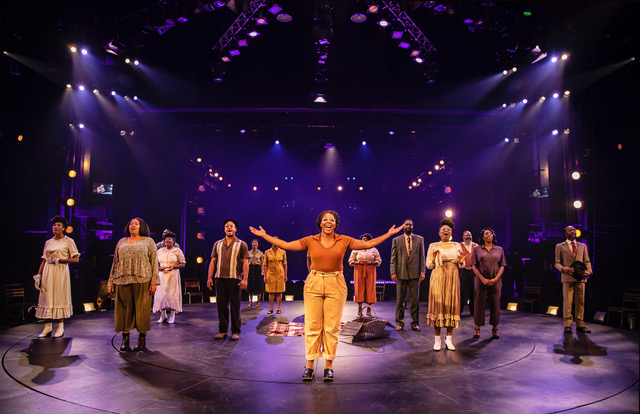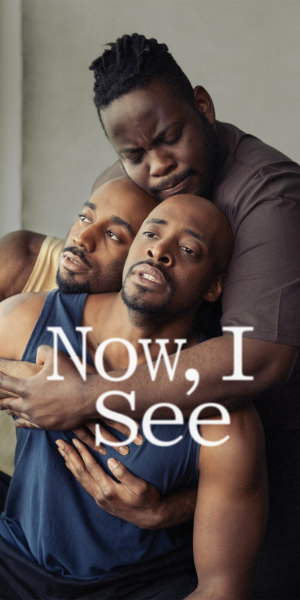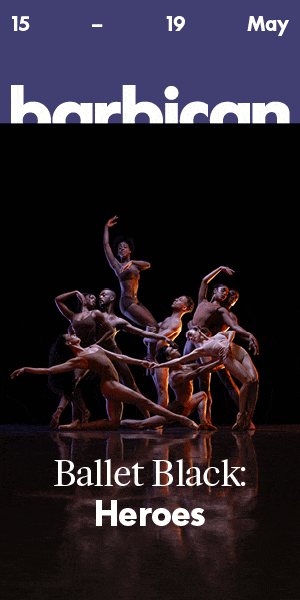In 1983 Alice Walker published a collection of essays and speeches; In Search of Our Mothers’ Gardens: Womanist Prose. It was a manifesto for centering and addressing the experiences of young, poor, Black women and its attendant trauma. The collection was published off the back of the enormous success (a Pulitzer Prize no less!) of her third novel The Color Purple. If In Search Of was her manifesto for womanism, the novel was the fictional exploration of its themes, with Celie, a poor, young, Black woman in the American South making the hero’s journey. The Curve’s new Covid-conscious musical production of The Color Purple offers flashes of brilliance that uplift the source material, and in places, lets it down.
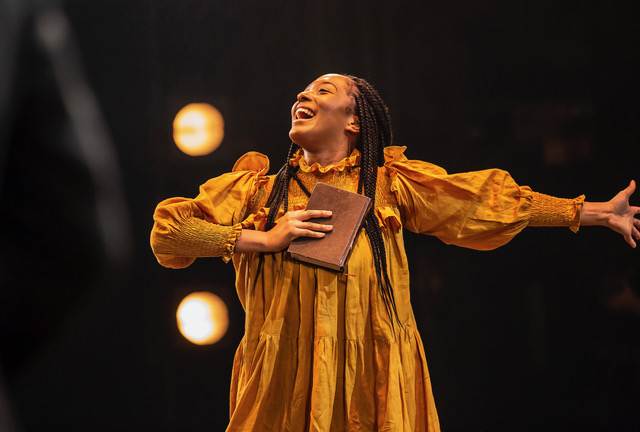
Act 1 introduces the central character of Celie and her sister Nettie. Their close relationship is quickly established, if sparingly depicted, so that the injustice of their separation is surprisingly well-earned. The play explores their individual paths to growth, fulfilment and freedom that Walker believes Black women are long overdue. Director Tinuke Craig seamlessly translates the novel’s epistolary form into action without making you miss the letters. In fact, the content of Nettie’s letters which have been criticised as less engaging than Celie’s, is unshackled from the constraints of the novel’s form. They are made more compelling as a dialogue between Nettie and the women she lives among.
The performances are uniformly excellent. Somehow T’shan Williams manages to both anchor and propel the weight of this production and its inspiration. She is brilliant.
The first half of the production is frenetic; relationships are made and remade, big, bold characters crash in and out. Celie is wide-eyed, drinking in influences that are both dark and light unfiltered by her own underdeveloped ideas, perspective, desires. In the second half, the pace slows, and the staging is set for an altogether mediative affair which I found more compelling. The Greek-inspired gospel chorus, which was clunky and took me out of the action in the first half, came alive when remade as women in the unnamed African village Nettie is working in. Speaking to her later character development, the second half explores how Celie has internalised, negotiated and or rejected these influences to forge her own identity, opening up space for the spectacle of numbers such as ‘In Miss Celie’s Pants,’ and well-earned dramatic spotlights (I’m Here).
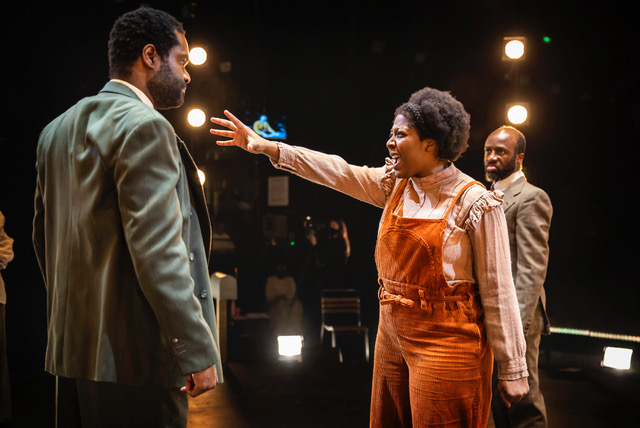
Unfortunately, the trauma felt largely expositional, with most of the abuse taking place off-stage or being retold by an ancillary character. We are made aware early on that Celie is raped by a relative resulting in a pregnancy. In the novel, Celie’s simplistic, matter-of-fact expression is in keeping with her low levels of literacy, normalised abuse, and naivety. While Williams’ performance skilfully conveys Celie’s challenges, the fact of the abuse is too easily moved on from for it to land. It feels as if it is merely in service of the plot when it is actually fundamental to Celie’s worldview, relationships and ultimate emancipation. I found this insensitive and, at times, upsetting. Walker demands that we take Black women’s pain seriously, not to dwell on it, but to grow from it, and that was lost here.
Tinuke Craig does a masterful job
The interpretation of the central love story is disappointing, not for the heartbreak inevitable even from its spark, but for its chasteness. The production fired the actor initially cast as Celie for a homophobic tweet, and yet this integrity and solidarity is undermined by failing to portray Black lesbian love in the way it deserves. Acknowledging the limitations of Covid, I am unconvinced that a production that had the emotional intelligence to balance a revolving stage with absolute stillness as and when needed could not find a way to convey the sensuous, unashamed and uplifting love that has made Celie and Shug’s love story one of legend.
The performances are uniformly excellent. Somehow T’shan Williams manages to both anchor and propel the weight of this production and its inspiration. She is brilliant. Carly Mercedes Dyer bodies Shug Avery, and dares the audience not to fall under the same spell her characters casts over everyone she meets. Ako Mitchell’s transformation from a monster to a man is achieved beautifully. An extra shout-out goes to the dancers and costume department that brought colour to the deliberately drab backdrop of poverty in the deep South.
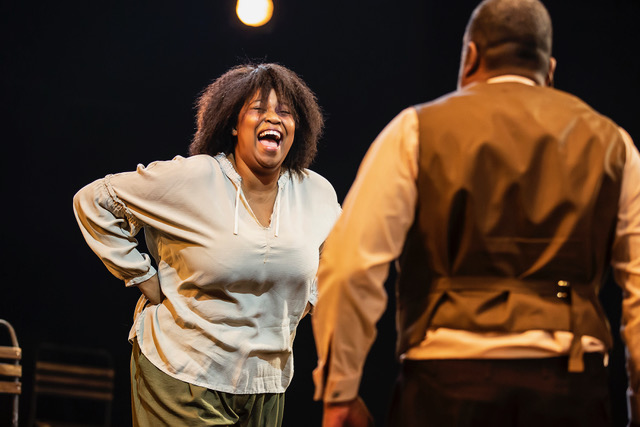
It is here in the production values that this showing more than meets the challenges presented by the pandemic. Craig does a masterful job maintaining the modalities of theatre in the blackness of the staging and the familiarity of spotlights while harnesses the freedoms of moving picture. The camerawork is unsteady; it jars as Celie stumbles through her downtrodden existence and accelerates as she celebrates coming into her own. The subversive humour, the luminous hues, and great beating heart that is Celie’s, so transcendently portrayed by T’Shan Williams, ground the moments that could have been better expressed within a production that is undoubtedly affirming, as, with the novel, it compels us to recognise that these lives (our lives) matter.

























